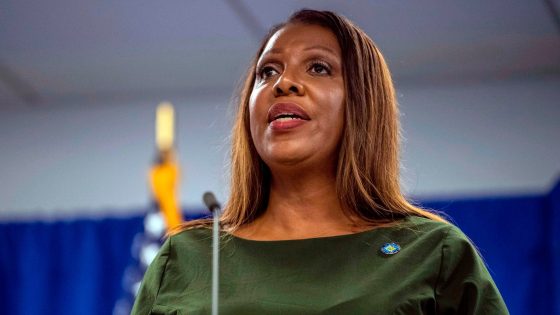The New York Attorney General’s Office sent a cease-and-desist letter to Nassau County over its recent anti-transgender sports ban.
“The Order’s immediate effect is to force sports leagues to make an impossible choice: discriminate against transgender women and girls, in violation of New York law, or find somewhere else to play,” said the letter addressed to Nassau County Executive Bruce Blakeman.
Blakeman announced an executive order on Feb. 22 that bans transgender athletes from competing in events aligning with their gender identity in county-run facilities.
The executive order states that sports leagues, organizations, teams and other entities in the Long Island county must expressly designate teams based on an athlete’s sex assigned at birth when applying for a “use and occupancy” permit at a Nassau County Parks property for a sporting competition or event on all levels.
The AG’s office argues that the order is “in clear violation of New York State anti-discrimination laws and demands that it be immediately rescinded.”
Nassau County Executive Bruce A Blakeman speaks during a rally in support of Daniel Penny at Collect Pond Park on May 24, 2023 in New York City.
Michael M. Santiago/Getty Images, FILE
The letter argues that not only will the policy deter inclusive teams from attending events in about 100 venues in the county, but also “by requiring teams and leagues to exclude transgender women and girls as a condition of using covered facilities, it invites invasive policing of the sex and gender identity and expression of all girls and women.”
In a social media post, Blakeman defended the transgender sports ban.
“My [executive order] stops the bullying of women and girls by transgender males who have many outlets to compete without putting the safety and security of females in danger,” said Blakeman. “In Nassau we will continue to fight for females’ right to be safe, secure, and have a level playing field to compete.”
Under the executive order, permits will not be given to any event or competition that allows transgender women or girls to compete in girls’ or women’s sporting events. This restrictions were set to go into effect immediately, according to Blakeman’s office.
The move goes against guidelines from local and national sports associations.

New York Attorney General Letitia James speaks during a news conference, Sept. 21, 2022, in New York.
Brittainy Newman/AP, FILE
The New York State Public High School Athletic Association’s transgender policy states that it is “committed to providing all students with the opportunity to participate … in a manner consistent with their gender identity and the New York State Commissioner of Education’s Regulations.”
The governing bodies of several national and international sports leagues, including the International Olympic Committee, require transgender women to meet certain hormone levels in order to play on sports teams with cisgender women.
The National Collegiate Athletic Association transgender guidelines vary from sport to sport. Transgender student-athletes typically need to document sport-specific testosterone levels at the beginning of their season and a second documentation six months later, and then another documentation four weeks before championship selections.
There is no clear data on whether transgender women have an advantage physiologically, according to health experts.
One study in the British Journal of Sports Medicine found that the athletic advantages of 46 trans women over their cisgender counterparts declined with feminizing therapy. However, this study also found they had a 9% faster mean run speed than cisgender women after a one-year period of testosterone suppression.
A different study in the American Journal of Sports Medicine found that there is not yet any direct or consistent research suggesting transgender women have an athletic advantage at any stage of their transition.
Experts wrote in a recent JAMA Pediatrics editorial that preventing trans youth from participating in school sports could be harmful for the mental and physical health of an already at-risk population because they lose out on the developmental benefits of sports participation.
Blakeman, a Republican, said he believes the designation of separate athletic teams or sports based on sex assigned at birth “is necessary to maintain fairness for women’s athletic opportunities.”
“Women and Girls hard work, on-field achievements, and athletic futures deserve to be fostered, nurtured, and celebrated,” Blakeman stated in the executive order.
Local civil rights advocacy groups, including the New York Civil Liberties Union, argued the executive order is illegal.
“Requiring girls who are trans to compete on boys’ teams effectively bars them from sports altogether,” NYCLU said in a statement to ABC News. “Participating would mean being outed and being denied the same opportunities other girls enjoy: to challenge themselves, improve fitness, and be part of a team of their peers.”
Source Agencies



